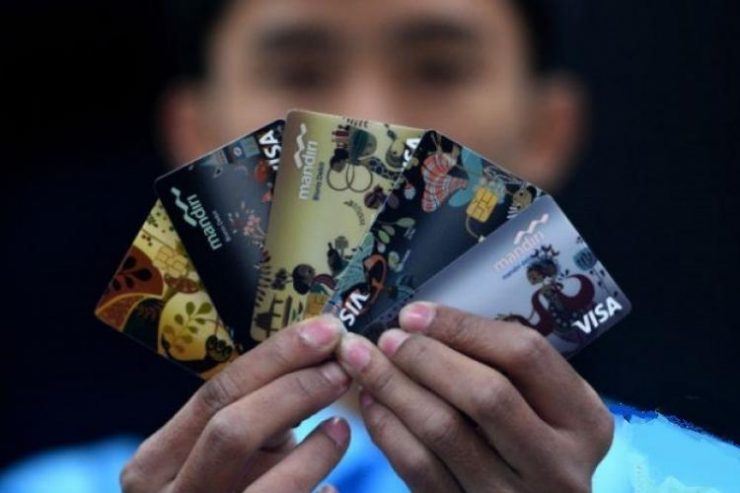TRANSACTION trends are currently shifting from the conventional system of direct cash payment to an online cashless system by capitalizing on the latest technology used in online trade or e-commerce activities.
Hence, the government believes that the e-commerce industry is one of the business sectors having high future prospects, and to this end, it is drafting an e-commerce regulation to ensure equality between conventional and e-commerce traders.
Vice President Jusuf Kalla (JK) and Industry Minister Airlangga Hartarto held a meeting recently to discuss matters related to electronic trade or e-commerce development.
“JK has just met with the ministers to discuss the roadmap of e-commerce,” Hartarto stated at the office of Muhammadiyah, Indonesia’s second-largest Muslim organization, in Jakarta.
“We discussed the idea of imposing a half percent tax on e-commerce,” Hartarto remarked.
The minister noted that the tax will be applied on business entities that have been classified as Small and Medium Enterprises (SMEs). The SMEs will be given three years before finally following the applicable taxation.
According to Tokopedia.com, one of the country`s popular online shopping centers, e-commerce traders are still complacent about the SME level of their businesses and have no further intentions to develop their products into national brands.
Tokopedia CEO William Tanuwijaya stated at a press conference recently that of the some 2.7 million goods producers of Tokopedia, none had the intention to increase their product brands at the national or global level.
“Currently, Tokopedia has 2.7 million sellers, many of whom originated from local producers, but most of them are only stuck at the SME level. They focus only on selling products (though online shopping centers), and they thereafter do not develop a brand at the national level for their products,” Tanuwijaya noted.
He admitted that developing small businesses and upgrading their products into a national brand needed the support of various stakeholders.
According to Tanuwijaya, several creative small businesses are yet to have legal entities whereas to gain access to capital and financing, business players must have legal entities.
Tanuwijaya expressed hope that the 2.7 million sellers on Tokopedia would be inspired to build national brands worldwide and expand their businesses through physical stores.
“I want that the 2.7 million sellers on Tokopedia would not stop there only but would be inspired to build a brand, or they can also advance not only through the online but also offline system,” he remarked.
On the same occasion, Head of the Creative Economy Agency Triawan Munaf noted that only one percent of the 100 creative economic businesses in Indonesia are incorporated.
“Those already having legal entities in the form of a limited liability company (PT) still constitute below one percent, while the other 3.86 percent are entrepreneurs, and the rest are from the cottage industry,” Munfaf stated.
Hence, the prospects of online trade or e-commerce are bright. Based on surveys, most Indonesian youth of the millennial generation prefer conducting transactions through a cashless system by using debit cards, credit cards, and electronic money.
Electronic money transactions have showed a significant growth until the end of November 2017, with a total nominal value of Rp1.64 trillion, up 98 percent year-on-year as compared with that in November 2016.
Bank Indonesia’s statistics in Jakarta recently had indicated a nominal growth of 98 percent and a rise in volume of 93 percent to reach 128.51 million transactions, from 79.22 million recorded in November 2016.
According to results of surveys by the Indonesian Internet Service Providers Association, currently, more than 50 percent of Indonesia`s 262 million population are internet users, or some 143 million in 2017. This is a drastic increase from 500 thousand users in 1998.
In the meantime, data at the Ministry of Communications and Informatics indicated that the value of online trading transactions, or e-commerce, reached Rp200 trillion (US$14.9 billion).
Hence, the government needs to regulate trade activities conducted through the online payment system. It will soon complete the draft regulation on e-commerce in order to create a balance between online and conventional trade.
E-commerce is inevitable, so the government is keen to ensure business equality between e-commerce and conventional traders, he stated while addressing a seminar and limited working meeting of the Indonesian Association of Shopping Centers here.
“I want a level playing field. We will complete the draft of the government regulation in two weeks or a month,” Trade Minister Enggartiasto Lukita emphasized.
He urged conventional traders to take precautionary measures in the face of a shift in the people`s lifestyle in almost all parts of the world.
The real sector is part of the economic activities that create more jobs and contribute to the Indonesian economy, he added.
“We must adapt to it. We cannot oppose the mainstream. The adjustment is needed, as each country has its own characteristics. However, do not underestimate the intention to do business,” he pointed out. [antaranews]
















